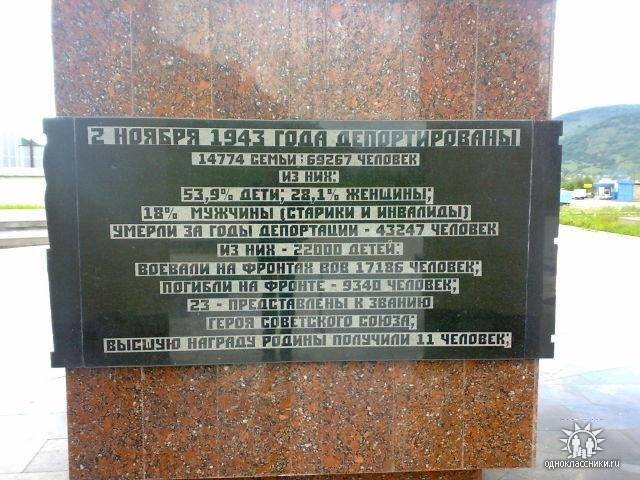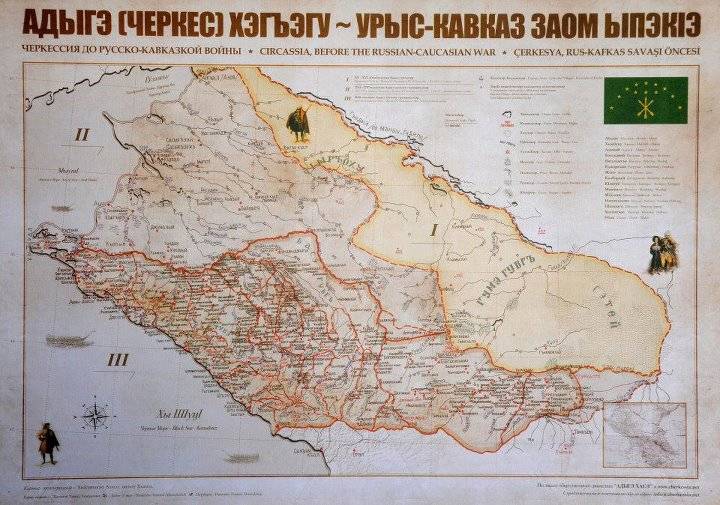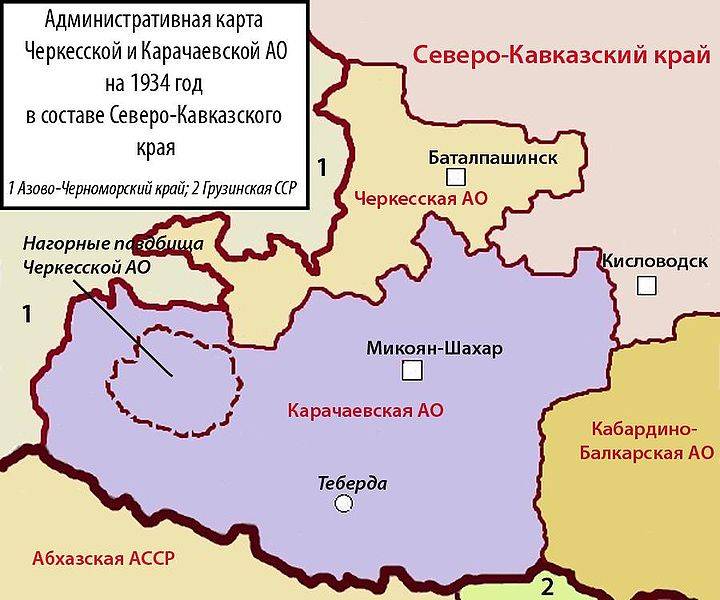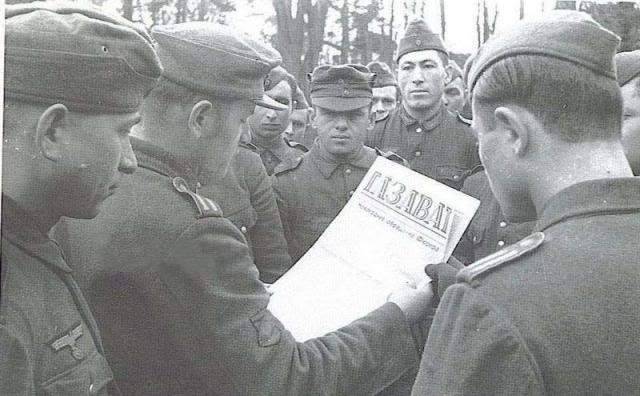Secrets of deportations. Part of 2. Karachay

In fact, in the Kremlin, in fact, they followed only the process: the numerous Caucasian “governors” themselves after the 20th Congress of the CPSU were in a hurry to report to Moscow in “overcoming the consequences of the personality cult” of a wide variety. On national issues as well. In the numerous letters leaving then to Moscow, but, as a rule, they did not reach it, the local residents, mostly from among those who were not deported, wrote that they had again “laid under the Karachay” Circassians. The consequences of such an international decision affect today.

If desired, in stories Caucasus, you can find a "justification" for any territorial divisions
Quite recently, the initiative groups of the Circassians and the Abazins declared their plans to create in the north of the Karachay-Cherkess Republic a separate dual autonomy within the Stavropol region. The reasons for this initiative are known, although they are not very actively covered by the central media: the republic is experiencing growing socio-economic, linguistic and political discrimination of less numerous ethnic groups on the part of the Karachai people.
These statements became in essence an attempt to continue the work begun with the sending to Moscow of an open letter to President V. Putin with practically the same content. As it is known, it was signed by Abu-Yusuf Banov, representing the “Council of Elders of the Circassian People”, Janibek Kuzhev from the public organization “Abaza” (self-name Abaza) and Rauf Daurov from the “Center of Circassian Culture”.
It should be recalled that all this has already happened, and it was quite a long time ago. The same proposals were made by representatives of the indigenous population of a number of regions of Karachay-Cherkessia four decades ago. The assessment that the Chairman of the KGB of the USSR Yuri Andropov gave to such initiatives, who sent a memo to the Politburo on December 9 of December 1980, is indicative. She is absolutely characteristic of that era, probably not accidentally called the “era of stagnation”, the name: “On the negative processes in the Karachay-Cherkessia Autonomous Region”.
So, excerpts from the document.
Under the influence of the ideas of nationalism, some representatives of the creative intelligentsia in their works emphasize the national superiority of the Karachai people, endowing with the positive qualities of the former traitors of the Motherland portrayed by them. The Circassian population and other national groups are discontent with the fact that they are actually “distant” from most of the leadership positions in the region in various fields ... ”
As we can see, the national problems, no matter how urgent they are, could not be solved either during the period of dethronement of the personality cult or under developed socialism. There is a feeling that even now many in the federal center would simply like to let go of the brakes. Moreover, sometimes not the most successful experience from Soviet history is taken into service.
And the Soviet leadership (true Leninists, and therefore internationalists) was not originally a supporter of creating numerous ethnic autonomies in the North Caucasus, acting on the principle of “later on gathering torment,” voiced by Sergo Ordzhonikidze.
Not too numerous ethnic groups simply united, regardless of how close they are to each other ethnically and culturally. Religious preferences in the country of state atheism were ignored altogether, as long as everything was territorially decent. However, it is usually precisely because of the territories that conflicts on national and religious grounds flared up, as it has become increasingly frequent now. On the basis of this approach, not only Karachay-Cherkessia, but also Chechen-Ingushetia and Kabardino-Balkaria were formed. But Ossetia was divided into South and North, and even after August 2008, there is still very, very far from universal national happiness.
Karachay-Cherkess Autonomy itself, first in the status of the region, was formed in 1922 year. Its basis was the Karachaevsky National District from the then High Mountain Autonomous Soviet Socialist Republic. But in the 1926 region, it was decided to divide into Karachai Autonomous Region and the Circassian National District as part of Stavropol, then the North Caucasus Territory, which at the end of 30's will be named after the very expert on the national issue - Ordzhonikidze. At the same time, a rather large Circassian enclave will remain in Karachai, more precisely, if approached formally, an exclave.

The excesses between the Circassians and Karachai appeared almost immediately, although they, in fact, did not stop almost never, just now there was a rather serious reason. At the same time, various anti-Soviet groups that began to form in the mountains easily united the representatives of both ethnic groups. Both those and others actively tried to disrupt collectivization, fought against the elimination of private property, and by all possible means counteracted the authorities' offensive against Islam. In addition, the warring nations unitedly opposed the introduction of the Russian language and other Soviet events, and most importantly - against the mandatory military draft, although they did not refuse to serve with the king.
Moreover, up to half of these groups, mainly Karachai, managed to hold out in such a kind of underground until the German occupation of the North Caucasus in August 1942 of the year. And when the fascist German troops in February-March 1943 were expelled from the Caucasus, the Karachays and Circassians immediately returned to partisan activities. With the support of the German and Turkish intelligence services, they managed to hold out for another three or four years. There is quite extensive information about those sabotage groups that managed to get help from Western, first of all, British special services, it took even more time to eliminate them.
The rapid advance of the German troops to the Main Caucasian Range caused literally a barrage of new anti-Soviet excesses. The response of the security services were brutal repression, which are often clearly delayed. Almost immediately, sometimes even before the arrival of the Germans, most of the people from the well-to-do ethnosocial strata, as well as from those who fought in the Civil War against the Bolsheviks and the White Guards, left the underground and found themselves in the ranks of collaborators. The “victims” of the atheistic events, the victims of expropriation, as well as the numerous supporters of the independence of the so-called united Adyghe-Circassian-Balkarian Republic, also moved there.
From representatives of just such layers, the German authorities formed the autumn of 1942-th "Karachaevsky National Committee" headed by K. Bairamukov and "Circassian National Government" headed by A. Yakubovsky. In this regard, it is characteristic that in Berlin, in contrast to Moscow, they immediately took into account the complex relations between the Circassians and Karachais, creating there not just one but two puppet structures according to ethnic principle.
“The Karachaevsky National Committee” at the same time received specific powers: “it was transferred to the Soviet state, collective farm and public property, as well as management of the economy, culture and propaganda (under German control)”. He, according to the same data, participated in the occupation repressions, financially assisted the invaders, established contacts with other collaborators in the region, with national units of the SS and the Wehrmacht. Not hesitating about this, during the occupation of the region, local puppet newspapers and magazines also reported.

The committee even managed to proclaim the unification of Karachai and Balkaria into “united Karachay” with the capital where you would think - in Russian Kislovodsk!
In November 1943 of the year, A. Leontiev, the head of the USSR NKVD Anti-Gang Division, reported to the USSR Deputy Chief of the Interior Affairs S. Kruglov: “Soon after the occupation, the German command in Karachai established close ties with local nationalists, gang leaders, clergy and Murid leaders sect. And from their representatives created the so-called "Karachay National Committee". The committee was headed by Kady Bayramukov and Muratbi Laypanov (deputy. - Auth.), Subsequently (from May 1943 to April 1944 of the year. - Auth.) Working in the German Intelligence School in Beshui under Simferopol. ”
All this testifies to only one thing: there were grounds, and considerable ones, for the mass deportation from the Soviet leadership. For the then practice, it was generally almost the norm. And in comparison with the deportation of the Circassians, even under tsars, there are flowers at all. The eviction itself was carried out very quickly: from 2 to 22 in November 1943, tens of thousands of people (it is estimated that the total number of deported Karachai exceeds 65 thousand) “moved” to Kazakhstan and Kyrgyzstan. There is no reliable statistics on the dead and missing during the deportations. Up to 85% of Karachai territory was transferred to Georgia (the rest - to the Circassian Autonomous Region and to the Stavropol Territory).
However, indiscriminately accusing the Karachays of cooperating with the occupiers is, to put it mildly, hyperbole. According to the Generalized Data Bank "Memorial" and a number of other sources, more than nine thousand people from Karachai died and went missing on the fronts of the Great Patriotic War. More than 17 thousands of Karachai went to the front. 11 of them were awarded the title Hero of the Soviet Union.
In the war years, the residents of Karachai gathered and sent to the front in 1941-1943. six wagons of collective, individual gifts and, additionally, 68 650 units of various woolen and leather goods (as well as national cheese, lamb, goat's milk, koumiss, mineral waters, medicinal herbs). In the battles for the passes of the Main Caucasus Range, 17 guerrilla units participated, nine of which were almost exclusively Karachai. The guerrillas of the Karachai and Karachai-Abazin nationalities R. Romanchuk, Z. Erkenov, M. Isakov, Z. Erkenova, I. Akbaev, X. Kasaev, J. Chomaev, and many others, fell to the death of the brave in these battles.
The very fact of rehabilitation, and then repatriation of Karachai people, as well as other Caucasian peoples, testifies only to the questionable principledness of the then Soviet justice and the complete unprincipledness of the special services and the top leadership of the country, which replaced Stalin’s. The decision to return was made on the personal instructions of the first secretary of the Central Committee of the CPSU, Nikita Khrushchev, already in 1955.
And in February 1957, the Karachay-Cherkess Autonomous Region was recreated as part of the Stavropol region. For all this time, the internal borders of autonomy have changed at least five times, and the borders with Stavropol - and even more. At the same time, Moscow also made decisions on the maximum favoring of the Karachai people, as, incidentally, to other “exiled” peoples. And this, in turn, provoked numerous conflict situations between them, on the one hand, and the Circassians, Russians, Abazins - on the other. These conflicts smolder to this day, more often inflaming before direct collisions using weapons.
Information